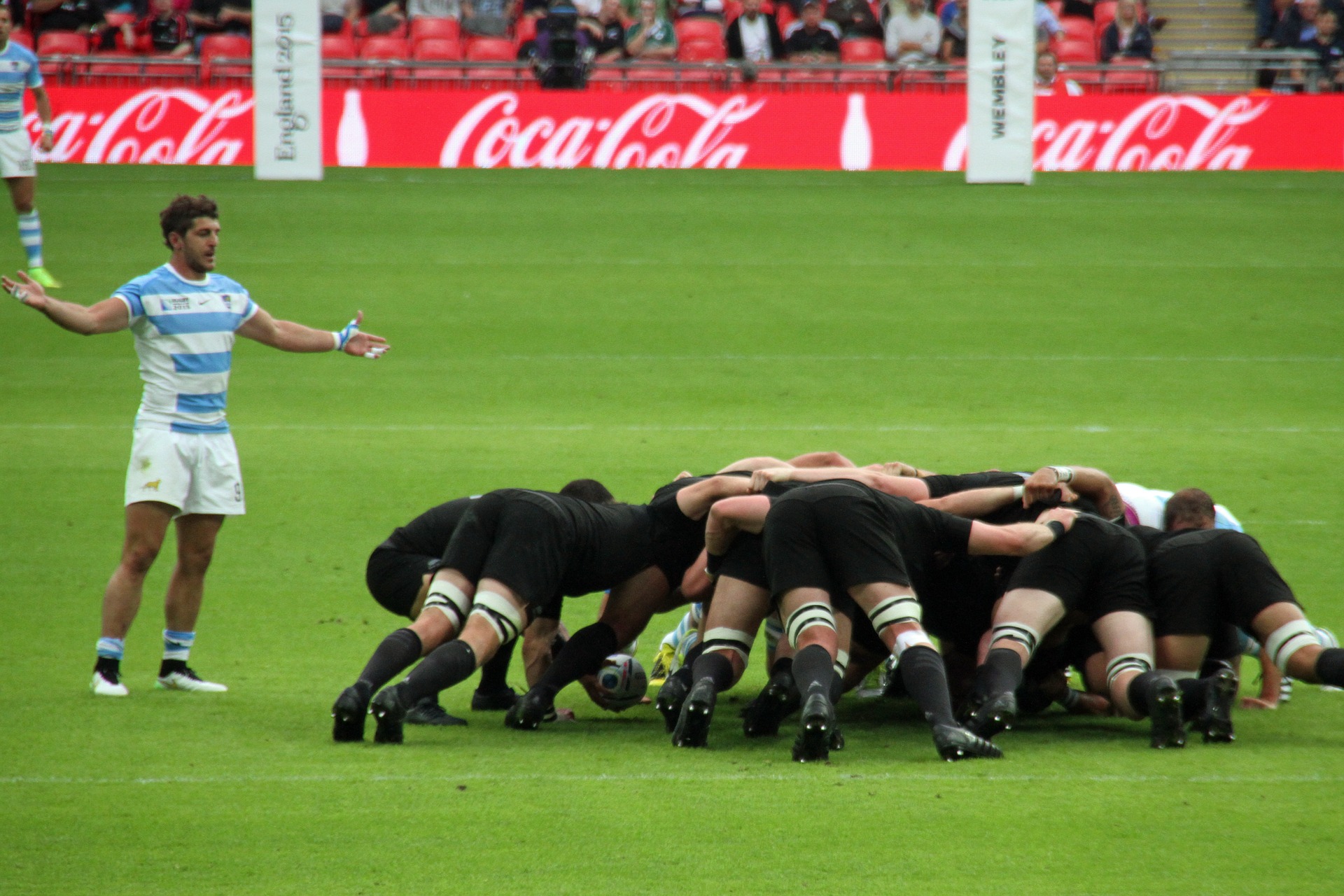In years gone by, the big nations of the Southern Hemisphere along with a handful of nations within Europe dominated the international rugby scene. However, in recent years we have seen many more national teams across the globe emerge as strong competitors putting the rugby juggernauts to the test and, in some cases, winning upset victories. The game of rugby has spread further afield since its humble beginnings and as a result has truly become a ‘world game’. This spread has seen the inclusion of many new national teams from around the world. At first many of these teams were considered ‘easy-beats’, however, grass roots development; the rise in the popularity of rugby sevens; and the globalisation of the sport of rugby has led to a more tightly-competitive game at the professional international level.
Once emerging teams like the Japanese Blossoms, the Argentinian Los Pumas, the Flying Fijians, the Italian gli Azzurri (the Blues) and the United States Eagles are proving to be difficult adversaries of rugby’s elite. This newfound success can be traced to exposure of the game to impressionable youth. Once the youth of a nation are exposed to the sport and their interest piqued, the next step is grassroots development. This method has been proven effective through the long success of South Africa whose exposure of rugby to youth and grass-roots development have been a priority since their underdog victory in the 1995 Rugby World Cup which they also hosted.
The popularity of rugby sevens – a shorter version of the game – has helped with this rugby exposure also. Many tournaments are held internationally each year, reaching a wider and more diverse audience. Sevens rugby is a faster, more free-flowing style of rugby which excites and inspires viewers. Sevens is seen as a great gateway into the 15-a-side game as it is faster, simpler, and easier to facilitate than the full complement version. For these reasons it is widely popular in Fiji, where the population find it a fun and easy game that can be played casually in a variety of public places. It is no mystery, then, that Fiji are one of the best teams in the international rugby sevens competition (if not the best team). The attraction and simplicity of sevens rugby has also appealed to other, previously less competitive, rugby nations like the U.S.A, Canada, Japan, Kenya and Italy. These teams have used the popularity of rugby sevens as a launching platform to promote the 15-a-side game which has led to a stronger national team.
The globalisation of rugby has also helped spread and develop rugby talent that otherwise would remain stagnant. Many young aspiring professional sportspeople see rugby as a way to make a living and expand their horizons. Rugby talent scouts now have the technology and resources to look wider afield in the pursuit of players with great potential. The Pacific Island nations have benefited in this way with many of their young players being scouted to play in highly competitive competitions in Europe and in the larger nations of the southern hemisphere. In general, many national rugby tournaments feature a greater variety of both local and foreign talent. Within such teams, these developing players receive top-level coaching, playing experience, training programs and access to higher-level technology and equipment. These players can then return to their home nations where they become ambassadors of the game, helping to pass-on their newly developed skills and knowledge as well as becoming role-models who inspire the next generation of rugby players.
This evolution of modern rugby has provided more competitive, tightly fought tournaments on multiple levels. It is becoming increasingly difficult to predict outcomes of fixtures which makes for a more interesting and entertaining spectacle. It is foreseeable that even the New Zealand, All Black’s rugby dynasty may come to an end and a new era of closely competitive international teams jostling for pole position may rise in its stead.
Vocabulary List
K1
K2
K3
Off-list
a
across
Africa
all
along
also
an
and
are
Argentina
Argentinian
around
as
at
be
become
becoming
been
best
big
black
blossom
blues
both
by
can
Canada
Canadian
case
city
closely
come
consider
cup
difficult
dog
each
eagle
easy
easier
end
Europe
even
experience
faster
Fiji/Fijian
find
first
flying
for
fought
found
free
from
full
fun
further
game
general
grass
greater
has/have
held
help
helped
helping
hemisphere
higher
highly
home
however
if
in
interest
interesting
into
is
island
it
its
Italy
Italian
Japan
Japanese
Kenya
Kenyan
larger
led
less
level
like
living
local
long
look
make
many
may
more
nation
national
new
New Zealand
next
no
not
now
number
of
on
once
one
other
pacific
pass
play
played
player
playing
position
program
public
put
reaching
reason
recent
return
rise
rugby
see
seen
side
since
some
south
southern
sport
states
step
strong
stronger
such
team
test
than
that
the
their
then
these
they
this
through
tightly
to
top
training
truly
under
united
used
way
we
well
were
where
which
who
widely
wider
winning
with
within
world
would
year
young
access
appealed
attract
beg
casually
coaching
competition
develop
developed
developing
development
entertaining equipment
exposed
exposure
feature
flowing
foreign
generation increasingly knowledge
model
modern
mystery
otherwise
pole
popular
popularity
population
previously professional
proven
provided
receive
remain
result
role
roots
scene
skill
spread
style
success
technology
traced
upset
version
ally
audience
compete
competitive
competitor
diverse
dominated effective
elite
emerge
emerging
era
evolution
expand
facilitate globalization inspire international launching
method
multiple
outcome
platform
potential
predict
priority
promote
resource
talent
tournament
variety
victory
youth
adversary
afield
ambassador
aspiring
being
benefited
competition
dynasty
fixtures
foreseeable
great
horizons
jostling
newly
pursuit
scout
scouted
spectacle sportspeople stagnant
stead

No responses yet